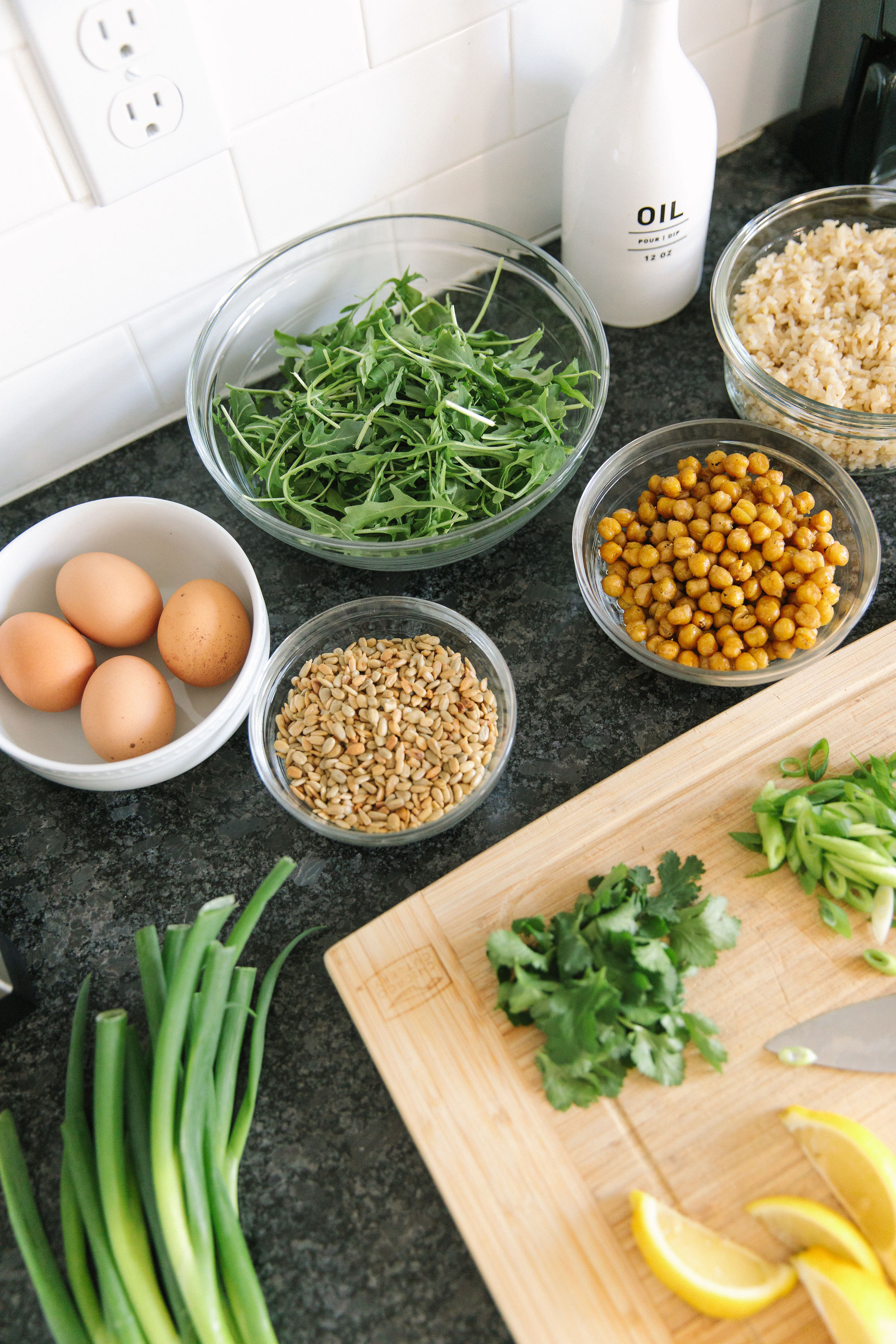Balance Hormones With Food
People are sometimes surprised, after learning my vocation, to see my Instagram and learn my stance regarding dieting and Diet Culture.
“Wait, but you’re in the health profession and you say it’s OK to have cake? That you should eat what you want? That doesn’t make any sense.”
Well, my friends, if you’ve ever felt like everywhere you look for help on balancing hormones is simple advice to “cut this out forever” and “control your food like this” etc., strap on your seatbelts.
Approaching food without rigid rules is possible, even when healing your hormones is a priority. But first, I want to cover something very important.
Hormone health is about so much more than what you eat. Actually, take that a step further. HEALTH is so much more than what you eat.
What impacts our hormones has to do with the way we think, our external environment, how we feel about ourselves, toxic trauma, the emotions we carry, the products we use on our skin and the chemicals we use to clean our homes.
Hormones are impacted by so many more things outside of the food you eat. And not a lot of people are giving your emotional and mental wellbeing the proper right it deserves.
If my client told me they had to choose between buying all organic groceries OR attending their therapy sessions, hands down CHOOSE THERAPY.
Not only is this an important perspective to have for the quality of life you want to live, it’s CRUCIAL to your biological health as a woman.
Making mental and emotional health a priority is, hands down, the BEST THING you can do for your hormones. SO many women struggle with hormone issues originally starting from mental and emotional disarray.
Whether they have hypothalamic amenorrhea from chronically dieting and need to eradicate the lie of self worth that caused them to chase an unrealistic ideal in the first place, or they’re in a toxic relationship that causes their system to be in fight or flight all the time therefore down-regulating their estrogen and progesterone.
And so many other scenarios I’ve seen and could go on and on. Even for women who come to me for what they assume is a simple imbalance, there is ALWAYS a mental and emotional piece to address. So, when it comes to caring for your hormonal health, prioritize your heart first, and nutrition second (or, hey, third. Because sleep is important, too.)
Now that we have that out of the way, I want to dig into the meat of this article. It is the ultimate question I get in response to my discussion on Instagram about diet culture and transitioning into a more intuitive relationship with food.
The question often looks like this:
“If we know that certain foods are better for our health, and that certain foods can aggravate it, how do we engage with nutrition without slipping into a restrictive mentality?”
Good question.
Here’s my 3 top tips to do so:
One. Untangle aesthetic focused motivations from actual health decisions.
When we make losing weight THE THING in our pursuit of health, we are actually not making health the main goal. And yes, I know that might sound a little shocking. Especially because we’ve been taught to assimilate health and weight loss as synonymous.
But here’s the truth.
There are a LOT of UNHEALTHY ways to lose weight. Just because you are losing weight does not AT ALL mean you are automatically improving your hormone health. And if you enact health-promoting behaviors and your weight stays the same, that doesn’t mean it’s “not making a difference.”
Hormone health is measured by how pain free your periods are, their regularity, blood work, how you feel physically and mentally, how well you sleep, etc. NOT a number on the scale.
If we focus on weight as opposed to real markers of health, true healing isn’t the priority.
What to do instead: Prioritize health promoting behaviors over numbers. Engaging in joyful movement, consuming nutrient-dense foods, reducing stress, specific supplementation, etc. These are all behaviors that will produce healthful results whether you lose weight or not.
Two. Focus on INCLUSION versus EXCLUSION
The panic that can come with restriction is triggered by food rules and fear associated with foods. Often, things like sugar and gluten and dairy get attached with things like “BAD” and “INFLAMMATORY.”
Here’s the thing:
Food doesn’t have morality. Eating or not eating food doesn’t make you a good or bad person. It’s just food. All food has equal moral value, in that it has none. But so often when we obsess about foods that are “bad” and “off limits” we spiral into disordered behaviors.
Not only this, but when we get stuck into the “off limit” spiral, we don’t actually do any healing. Healing involves INCLUDING the nutrient our body needs to come into balance, as well as potent superfoods.
With that being said, when I discuss NUTRITION and nutrient density, it is ALL within the realm of realizing that is not necessarily the only thing considered when choosing foods. Remember that you are a grown ass woman and make the best decisions FOR YOU and YOUR BODY.
My favorite foods list is simply nutrient dense foods I have found to be helpful specifically with hormone health. And when I mention avoiding certain things like Soy and most conventional Dairy, it is NOT that these foods are “bad,” but that they have been shown to disrupt hormone function when ingested regularly in large quantities.
There is no shame. Just an objective look at how we can optimize nutrition for healing while also remembering that at the end of the day, no matter WHAT you eat, you are not “bad” or “good” because of it.
With nutrition, my aim is to optimize the number of nutrients I or my clients are receiving from each meal while also prioritizing satisfaction and what you are craving, so when we are faced with food choices, our mind will say “what will give me the highest source of natural, food-based vitamins and minerals,” NOT “what has less calories” or “what can I eat to get skinny?”
Focus on INCLUDING lots of green veggies, unprocessed fats, pasture-raised animal products, root veggies and sprouted grains.
When eating, consider your cravings, desires, and gently parent yourself for inclusive nutrition as well. Focus on INCLUSION, less rigid exclusion.
Three. If you have anything less than a peaceful, intuitive, and neutral relationship with food, look into getting help
Ultimately, how we feel about what we’re eating, our body, and ourselves has not only an impact on how our body PROCESSES food, but the stress hormone cascade we are triggering.
Often, the stress we have over food and our relationship with food is actually NOT ABOUT FOOD, it is about control, feelings of unworthiness, societal pressure and expectations, etc.
Doing the digging to process THOSE motivations allows your relationship with food to not become the scapegoat of other issues that need our attention.
Overall, building a healthy esteem, relationship with food, and seeing food as healing AND celebration AND fun and nothing that changes how worthy you are is the foundation of begin able to approach healing with grace and flexibility.
Jessica Rothley is a certified eating psychology coach specializing in functional endocrinology and the voice behind Wholly Healed. Jess works with clients to heal their relationship with their bodies through scientifically backed nourishment, psychological work and emotional healing.






